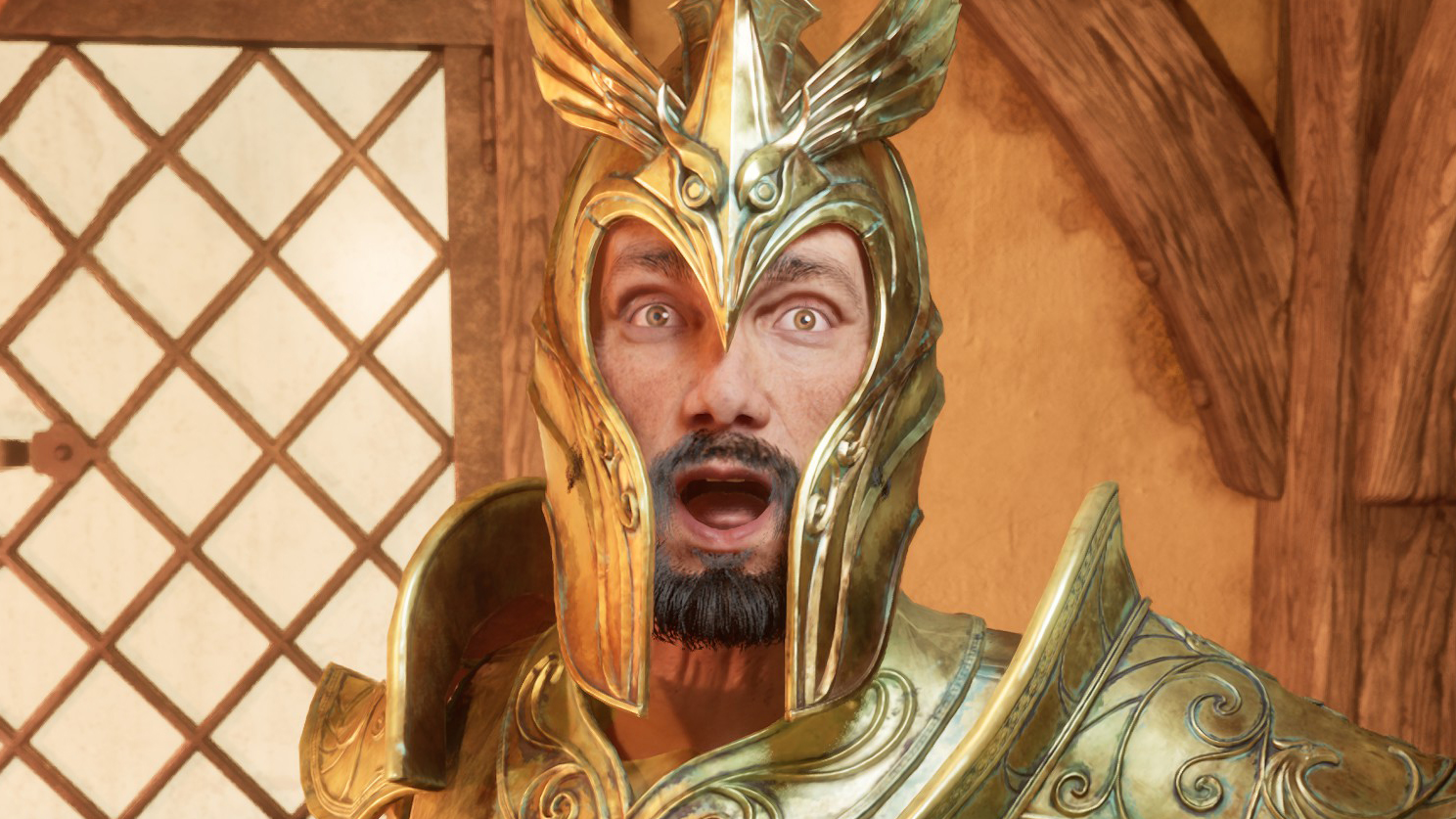
When it was released eleven years ago, Dragon’s Dogma stood out as a bold open-world action-RPG that didn’t conform to any pre-existing mold for the genre. From its one-of-a-kind Pawn mechanic that encouraged you to frequently swap out AI controlled companions from a network populated by creations from other players to its action centric combat that had you climbing all over giant monsters in order to specifically target weak points and bring them down to size, there’s nothing quite like it. Even to this day.
My big takeaway after playing an hour of Dragon’s Dogma 2 is that Capcom is doubling down on everything that made Dragon’s Dogma so unique, with a big focus on refining and polishing those elements to a shine. And in that regard, they’re succeeding. Pawns do everything that they did in the first game, but their contributions to both combat and navigation are more immediately noticeable. Melee combat feels more impactful and weighty, and exploration through its now seamless open world feels equal parts rewarding and dangerous. That said, after an hour of killing the usual Dragon’s Dogma rogue’s gallery of goblins, cyclops, saurians, harpies, bandits, and attempting occasional Griffin, I couldn’t help but wish that I experienced something that truly felt new in this sequel.
Capcom is doubling down on everything that made Dragon’s Dogma so unique.
My demo began right outside the human kingdom of Vermund and gave me free reign to go wherever I wanted. I had a handful of quests that I could follow, with my Pawns already set with knowledge of those quests, meaning I could simply let them lead the way and not have to deal with constantly bringing up the map and making sure I was still on course. Pawns having experience and knowledge of quests is not new to Dragon’s Dogma, and occasionally they would lead you through some tricky-to-follow paths, but here in Dragon’s Dogma 2 it was far more reliable. A simple press of left on the D-Pad to issue a help command while out of combat was enough for my Pawn to understand that I was looking for a trail to follow, and thus they would grab my attention and start leading the way once I started running towards them.
The coolest interaction that I experienced with a Pawn was after having cleared a cave of bandits, I noticed a treasure chest on a platform that was well out of reach. By issuing the help command, though, I noticed that my fighter Pawn moved herself closer to the platform, and then kneeled down like she was waiting to give me a boost. Sure enough, when I ran over, she launched me up with the Springboard skill, and I was able to collect a rare Ferrystone.
Combat is largely identical to how it was in the original Dragon’s Dogma: you’ve got a button for weak attacks, a button for heavy attacks, and then by holding down the left bumper, you’ve got a series of four skills that you can equip for a variety of attacks and spells. One of the big differences this time around is that the right bumper is now tied to your Vocation Action, which as the name implies, is an action unique to your vocation. For fighters, their vocation action is to raise their shield and guard against enemy attacks; for thieves, they’ve got a quick dodge called Swift Step; and for archers they’re able to directly aim with a Steady Shot.
Like the original game, there’s no melee lock-on mechanic and no dodge roll, unless it’s tied to your Vocation.
New to combat is a hit-stop effect that occurs when an enemy you’re attacking is low on life, indicating that they’re open to an execution by hitting them with a strong attack. It’s a light touch, but it goes a long way in making combat feel much more brutal and impactful. It’s worth noting that, like the original game, there’s no melee lock-on mechanic and no dodge roll, unless it’s tied to your Vocation. It’s a bold choice, and I have a feeling that not everyone will like it, but it does lend a very particular feel to Dragon’s Dogma 2’s combat. It’s much less about split-second reflexes and fierce aggression, and much more about careful positioning, awareness of where enemies are, relying on your pawns for support, and knowledge of how to exploit enemy weaknesses.
I got to restart the demo several times in the hour or so I got to play, and the thing that really impressed me was how different each successive run felt. One time I walked down the same beaten path I traversed in a previous session and suddenly got attacked by a Griffin. In another I followed a quest down to a riverbank and got to fight against a handful of Saurians that I never saw anywhere else. And in another, I was guided by my pawn to a cave full of surprisingly tough bandits guarding a bunch of treasure and valuable materials, and me and my party got absolutely wrecked. I ended up having to load up an earlier save, but this encounter excited me because even though I was being guided by a Pawn, the exploration still felt organic, and it made me well aware that the world of Dragon’s Dogma 2 was one full of danger and riches in equal measure, which is the heart of great exploration in video games.
All that said though, there definitely was a sense of deja vu while playing through this demo. The skills I used as both a fighter and a thief were almost identical to the early game skills from the first Dragon’s Dogma, I didn’t fight a single new enemy type, nor did I fight any of those enemies in a way that was much different from how I’d fight them in the original game. If there’s one comfort that I can have as a fan of Dragon’s Dogma, it’s that Dragon’s Dogma 2 will offer up more of what I loved about that first game, and that many of those minor elements have been improved upon. I couldn’t help but wish that I walked away from my demo a little more excited about something new about the sequel, though.
Mitchell Saltzman is an editorial producer at IGN. You can find him on twitter @JurassicRabbit






